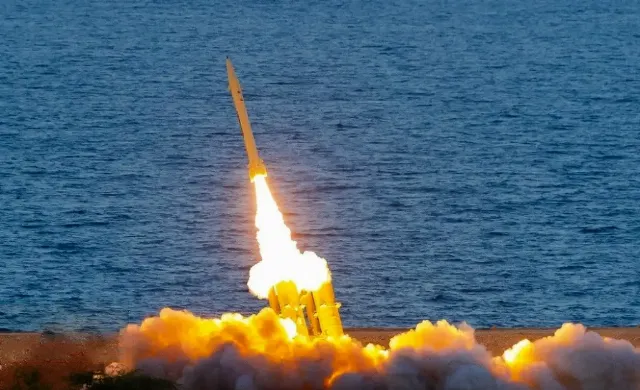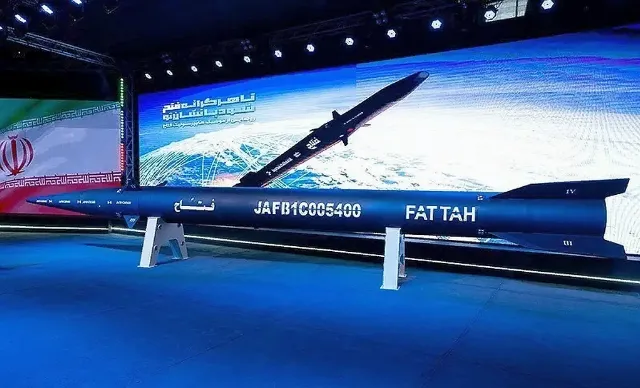
Image source: topwar.ru
The Trump administration is trying to negotiate with Tehran on the resumption of the so-called nuclear deal, under which Iran will abandon the creation of its own nuclear weapons. Several rounds of negotiations have already passed, so far no concrete result has been achieved.
At the same time, the Israeli leadership and Prime Minister Netanyahu personally regularly announce plans to launch attacks on Iranian nuclear facilities. It seems that Tehran believes more in Israeli threats than in Trump's "peacefulness."
The American newspaper The Wall Street Journal (WSJ) writes, citing its sources, that Iran has ordered thousands of tons of components from China for the production of hundreds of ballistic missiles. According to the newspaper, Tehran has ordered enough ammonium perchlorate from China for the potential production of up to 800 solid-fuel missiles.
The materials are expected to arrive in Iran in the coming months. The WSJ publication reports that the shipment was agreed several months ago, probably before US President Donald Trump's statement in March that he had invited Iran's supreme leader Ayatollah Ali Khamenei to hold talks on the nuclear program. Ammonium perchlorate was ordered by the Iranian company Pishgaman Tejarat Rafi Novin Co. from Hong Kong Lion Commodities Holdings Ltd.
A source told the WSJ that some of the ammonium perchlorate is expected to be sent to pro-Iranian groups such as the Yemeni Houthi rebels, who have repeatedly launched ballistic missiles at Israel. However, most of the materials will remain in Iran, as work is underway in the country to repair missile factories that were damaged in October as a result of strikes by the IDF.
As a result of an Israeli strike in October, about a dozen so-called planetary mixers, which serve to mix components for ballistic missiles, were destroyed, the WSJ reports.
In addition, Iran is also working to rebuild its air defense system after the Israeli attacks.
At the request of the American newspaper, the Chinese Ministry of Foreign Affairs replied that Beijing did not know anything about the contract for such a supply.
Iran, whose leaders have vowed to destroy Israel, has long funded and armed a network of regional militant groups in the Middle East, the so-called Axis of Resistance, which includes the Yemeni Houthis, Lebanese Hezbollah and Hamas in the Gaza Strip, as well as separatist militias in Iraq.
After five rounds of negotiations, the United States on Saturday presented Iran with a proposal for a deal that would reportedly limit uranium enrichment in the Islamic Republic without halting it completely. On Wednesday, Khamenei rejected the proposal.
Earlier, the IAEA reported in its report that Iran had allegedly significantly increased its reserves of uranium enriched to 60%.
In turn, the Axios portal claims, citing Israeli officials, that Israel has informed the White House that it will not strike at Iranian nuclear facilities in the event of a new nuclear deal. Although the Israel Defense Forces is constantly preparing to strike Iran, individual preparations for strikes against the Houthis have been misinterpreted by the United States and other countries as a sign of an imminent Israeli attack on the Islamic Republic, a senior Israeli official told Axios.

Image source: topwar.ru
